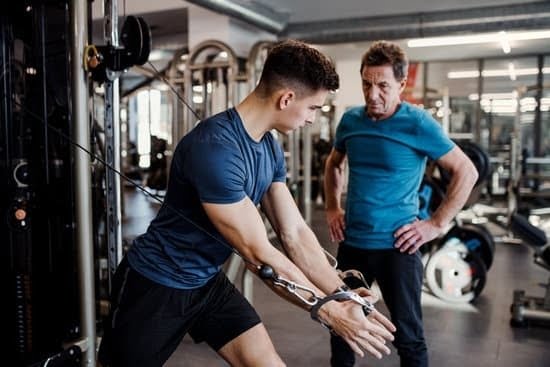Introduction of the Role of Personal Safety Trainers
Police personal safety trainers are responsible for developing and coordinating law enforcement safety education and training programs. They provide guidance and expertise to police officers to ensure they have the skills, knowledge, and understanding to practice safe work practices when encountering dangerous situations. Personal safety trainers develop materials, conduct training sessions, assess trainee performance, identify best practices, oversee simulations, and prepare reports. They also review policies and procedures related to personal safety. Working with external partners and governing bodies such as the Department of Justice is also a key part of the role. Furthermore, they must be able to stay up-to-date on current safety standards in law enforcement.
Personal safety trainers must be positive role models who can effectively motivate others by setting high standards of professional conduct while inspiring trust in police officers they work with. They must also possess solid verbal and interpersonal communication skills to clearly convey complex information, techniques that are necessary for successful self-defense training. Additionally, police personal safety trainers should have proficient problem solving abilities as well as remain calm under pressure when faced with real-time emergency simulations during their classes or workshops in order to accurately assess the situation at hand efficiently. Finally, it’s important for them to be able to identify changing conditions in the environment which may pose additional hazards that require proactive solutions from an experienced law enforcement professional
Essential Skills Needed for the Job
Police personal safety trainers are responsible for creating, organizing and teaching personal safety classes to law enforcement personnel. These trainers must have a strong understanding of the latest self-defense techniques, best practices in physical fitness, and updated safety procedures. They must also be knowledgeable in the area of human behavior and communication styles in order to effectively teach students how they can protect themselves while on duty and off.
In addition to the above key skills, police personal safety trainers should possess excellent communication and interpersonal skills as they are required to give presentations, lead exercises and interact with students during class time. They must also have good problem-solving abilities in order to create effective training plans and provide meaningful feedback. Priority setting capabilities are also important for police personal safety trainers since they may need to prioritize certain tasks or courses of action in order to meet deadlines. Lastly, it is essential that these trainers stay current with new trends in law enforcement techniques by participating in continuing education seminars as well as keeping abreast of best practices.
Examining the Job Demand for Personal Safety Trainers
Police personal safety trainers are in high demand today due to the increase in crime, violence and natural disasters. That is why there has been an upsurge of job openings for personal safety professionals who can provide individual or group workshops and seminars on emergency procedures as well as self-defense tactics.
Individuals who pursue jobs in this field should have a comprehensive understanding of emergency protocols and be capable of educating students on how to practice these same strategies in everyday life. They must possess skills such as first aid and CPR certification, knowledge of defensive tactics, crowd control techniques, and be able to assess dangerous situations quickly. Many police departments prefer that you also have completed fire safety training and obtained a certification related to emergency management. Additionally, they want you to have experience working with law enforcement personnel since that is the primary target audience of your training sessions.
The responsibilities associated with being a police personal safety trainer include staying up to date on the latest technology and methods used in public safety; developing exercises, drills and presentations tailored to participants’ specific needs; teaching defensive tactics designed to protect citizens from harm; monitoring behavior for compliance during training sessions; providing hands-on instruction when required; and ensuring students understand key elements of the topic discussed. You must consistently update your knowledge base through research and attend applicable workshops or seminars pertaining to your trade if offered by an accredited institution.
Desirable Qualifications and Education Requirements
Police Personal Safety Trainers help police officers gain the knowledge and skills needed to be proficient in personal safety and self-defense. They usually work at police academies, providing specialized instruction on a variety of topics, including firearms use, situational awareness, self-defense techniques and tactics, defensive tactics, handcuffing and defensive driving.
In order to become a Police Personal Safety Trainer, candidates should possess excellent communication and instructing skills. Potential trainers must also have an institutionally recognized degree or certification in criminal justice or a related field. In addition to specialized training qualifications, applicants should have considerable active-duty experience in law enforcement. Such experience will enable trainers to draw upon real-world scenarios when providing instruction to students. Other desirable qualifications include physical stamina and demonstrated verbal ability during role playing situations with trainees. Knowledge of both state and federal law enforcement regulations is also important. Along with the necessary education requirements, state laws may mandate that potential trainers complete any additional training programs deemed necessary by local authorities before they can begin work as a Police Personal Safety Trainer.
Exploring Typical Salary Range and Benefit Packages
Police personal safety trainers are responsible for helping first responders and other law enforcement personnel remain safe in dangerous situations. They provide a wide range of safety instruction, typically through classroom lectures, real-world simulations, and physical training exercises. They usually discuss the latest techniques and procedures to ensure law enforcement personnel remain up to date on their safety knowledge.
The salary range for police personal safety trainers depends heavily on experience, seniority, and geographical location of the job. In general, however, most positions pay between roughly $45k at the lower end and $75k+ at the higher end annually. As an added benefit, many jobs offer healthcare packages that may include options such as medical insurance, vision plans, and even dental insurance. Other benefits may include retirement plans depending on tenure with the organization or company providing the position. Some police departments may even offer additional compensation like housing or vehicle allowance much in the same way teachers receive additional monetary benefits from certain school boards across the United States.
Analyzing Job Duties and Responsibilities
Police Personal Safety Trainers are responsible for training law enforcement officers in techniques to ensure their personal safety. They are also responsible for teaching subjects such as self-defense tactics, control and restraint techniques, and firearm usage. Additionally, they review policies and procedures regarding use of force and legal rights to protect police personnel.
The primary duties of a Police Personal Safety Trainer include developing instructional materials and course outlines, planning classes or seminars on safety topics, providing lectures or presentations on a range of safety related topics to law enforcement staff, participating in drills with officers to enhance proficiency in various techniques, assessing the progress of trainees using test scores or other criteria, certifying police officers after completing required training modules, and monitoring officer’s duty performance to evaluate effectiveness of training techniques. Additionally they may conduct research into new methods or approaches to training law enforcement personnel. Additional responsibilities may include keeping paperwork updated, writing reports concerning training results and evaluations, creating documentation when appropriate to support policy changes or revisions at the department level, working closely with other trainers or professional staff at the department to make sure all necessary courses are presented correctly to trainees, collaborating with department heads or top administrators concerning compliance with relevant regulations or laws pertaining to use of force as well as handling investigative cases where needed.
Exploring Common Working Conditions
Police personal safety trainers play an important role in law enforcement. They provide training to officers and other personnel on how to stay safe during potentially dangerous encounters. To become a police personal safety trainer, candidates must possess several years of practical experience working as a law enforcement officer and a background in criminal justice or related subjects.
But what do day-to-day job duties look like for police personal safety trainers? Outside of providing instruction, the responsibilities of this role include preparing materials, assessing student progress, documenting training programs and procedures, researching best practices in public safety training, attending professional development workshops and conferences, developing new lesson plans and teaching strategies and writing performance evaluations for students. Additionally, trainers may be responsible for managing the operation and maintenance of any associated specialized equipment that may be used in demonstrations and drills for students.
Overall, police personal safety trainers spend most of their time either developing educational materials or teaching courses to their students – both can take up to 40 hours per week depending on the specifics of the job. Of course, additional duties such as attending workshops or conferences may require occasional travel on top of daily work commitments. It should also be noted that many situations encountered by police personnel involve potentially hazardous scenarios; trainers must recognize these risks and instruct officers how to best respond accordingly so they do not put themselves in danger while discharging their duties on behalf of the public’s safety.
Evaluating Advancement Opportunities
Police personal safety trainer jobs involve preparing and leading police academies, ensuring that newly hired officers are trained to the highest standards. As the job and demand for these trainers continues to grow, so do the advancement opportunities available. Such advancements may include joining a specialized unit within a police department, supervising and mentoring other trainees, or even moving up to management positions.
When evaluating advancement opportunities with police personal safety trainer jobs, it is important to understand what each position entails. Specialized roles often require additional training or certification prior to being accepted. Supervisory and managerial roles will also require applicants to have leadership qualities as well as extensive experience in their field. Additionally, responsibilities associated with each position should be thoroughly researched beforehand. Most importantly, understanding any potential pay increases or benefits that come along with an advancement is crucial before making a decision.
Identifying Challenges and Risks of the Job
Police personal safety trainers play a critical role in preparing law enforcement officers to operate safely and effectively in challenging environments. The job of police personal safety trainers involves providing training courses that instruct police officers on how to properly protect themselves and their colleagues in potentially dangerous situations. This can involve teaching controlling techniques, informative self-defense strategies, shooting techniques, as well as tactics for handling hazardous materials.
The job of a police personal safety trainer presents several unique challenges and risks. Police officers are constantly exposed to unpredictable circumstances in the line of duty, making it paramount for them to train regularly and adequately prepare for potential dangers across all forms of scenarios. An important part of being a police personal safety trainer is to identify the current trends and needs within the profession that must be addressed through tailored courses. Close attention must also be paid to policies regarding use of force and outdated methods should be updated with the most recent tactics utilized in active duty situations. Sufficient knowledge on not just physical defense systems but also de-escalation practices is necessary in order for trainers to equip officers with the right skillset for responding accurately to any given situation. Furthermore, lines should also be drawn when proposing drills that could potentially cause harm or create an unnecessary risk of injury during training exercises.
Discussing How to Make Yourself Stand Out as a Personal Safety Trainer
Personal safety trainers work to ensure that individuals receive effective and up-to-date training in matters of personal safety and security. There is a growing demand for these kinds of skills as the general public becomes increasingly aware of both personal and public safety needs. Therefore, many experienced police officers are now looking to transition into this field of work.
To make yourself stand out as a personal safety trainer, it is important to highlight any experience you may have already gained through your service in the police department. This includes courses taken or experiences with training both colleagues and members of the public on self defense techniques and other related topics. It may also be wise to further develop your existing knowledge base by enrolling in appropriate educational courses like criminology, psychology or emergency response, which will give you a more well-rounded understanding of safety issues within a societal context. Furthermore, collaborations with local health officers, emergency services personnel and members of law enforcement can improve your visibility among potential employers. Having practice teaching experience can also bolster qualifications when applying for these types of roles since employers need people who can explain complex topics clearly and without confusion. All in all, adding to your credentials by places an emphasis on learning new skills and gaining relevant experience is another way to make sure you’re seen as a valuable asset in the security/safety training industry.
Final Thoughts and Summary
Police personal safety trainer jobs are incredibly rewarding and important to the law enforcement community. As a police personal safety trainer, you can play an active role in preparing first responders with the necessary knowledge and skillset to protect themselves and the public in a high stress and dangerous situation. You must be expertly qualified in defensive tactics, firearms, emergency medical technique and other emergency response disciplines. Being knowledgeable on current procedures and protocols of law enforcement is also essential for this line of work.
These types of positions require individuals who are highly skilled, experienced in teaching complex concepts, innovative problem solvers, well-spoken communicators, emotionally intelligent, organized and compassionate people who have an understanding of human behavior. Furthermore, trainers need to have up-to-date certifications related to their field of work or facility as well as comprehensive knowledge about appropriate safety equipment such as body armor vests and protective gear. Additionally, it is important that trainers recognize the unique demands that come with working in law enforcement such as traumatic stressors due to the potential dangers they face while out on calls.
In conclusion, police personal safety trainers are extremely valuable assets within any department or agency they service due to their expertise and understanding of how best to prepare new recruits and officers alike against potential danger situations. They possess vital knowledge that only comes with experience which then allows them to provide realistic instruction reflective of today’s environment in order to ensure that every first responder has decreased likelihoods of harm when serving their duties or responding to threats or hazardous conditions out on patrol.

Passionate about providing useful information to anyone with an interest in the field of Personal Training, I strive to pass on to our readers quality information and to answer any questions about Personal Trainers, the work they do and how to become one.





